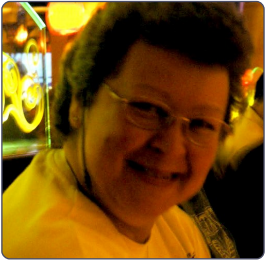Elizabeth Krumbach: Please tell us a little about yourself.
Valorie Zimmerman: I’m a writer, wife, mother and grandmother. Besides Free software and Free culture, social justice is important to me. Right now I’m finishing up the Amarok Handbook, which has been a year-long project.
During the recent Google Code-In project, I mentored quite a few teens who helped finish writing and illustrating the manual. That was a great experience! I enjoy music, reading, art, genealogy research, traveling, making new friends, and helping people in IRC.
EK: What inspired you to get involved in the Ubuntu community?
VZ: I’ve been a member of LinuxChix for many years, and there I heard about the Ubuntu-Women project. Since I was using Kubuntu at the time, I was encouraged to hear that Ubuntu as a whole was welcoming and encouraging participation from women and other F/OSS minorities. And when I found out that there was a local group, the Washington State LoCo, I wanted to help out there also. When I volunteered for Amarok documentation, that involved adding Freenode to my list of IRC servers, so I joined the #ubuntu-women channel, and it’s the first one I read every day.
EK: What inspired you to get involved with the Amarok project?
VZ: I had some time, and thought for awhile about how I could contribute to F/OSS and have fun at the same time. Since music brings so much joy to my life, and Amarok is my favorite app *ever* in my almost 30 years of using computers, AND they needed a new handbook, I volunteered. Rather than being ignored, I was welcomed, introduced around, and treated in a very friendly way. Even though my dad broke his hip a month or two later, and that ended putting the Handbook on hold for many months, I never met with impatience, but just helpful attitudes all around. It’s been a grand experience, and that gave me the confidence to ask for Kubuntu membership and volunteer to help on documentation there too.
EK: What are your roles within the Ubuntu community?
VZ: Since I became a Kubuntu member, I attended UDS-N (thanks for sponsoring me, Canonical!), have been continuing my participation in my LoCo, and participate in the #ubuntu-women and #ubuntu-women-project IRC channels. I hope to help with Kubuntu documentation in the next few cycles.
EK: Is there anything you haven’t done yet, but would like to get involved with in the Ubuntu community?
VZ: I thought I would already be learning how to do Kubuntu documentation by now, but still hope to ramp up my contribution there in the future. Once I learn how to do it, I hope to get others involved and trained also, since documentation is so valuable to the project. While my LoCo seems to be in a down phase right now, I hope to stand for leadership as part of a leadership team, following the excellent example of LinuxChix and Ubuntu-Women. I would like to see more Ubuntu activity all over the state of Washington.
EK: What other things are you interested in outside of open source and Ubuntu?
VZ: I love the growth of free culture around the world, where people share their art, music and other creative endeavors freely. I’m active in PFLAG (http://pflag.org) where we work on social justice for gay, lesbian, bi and trans people. One of my kids is gay, so this is very close to my heart.

